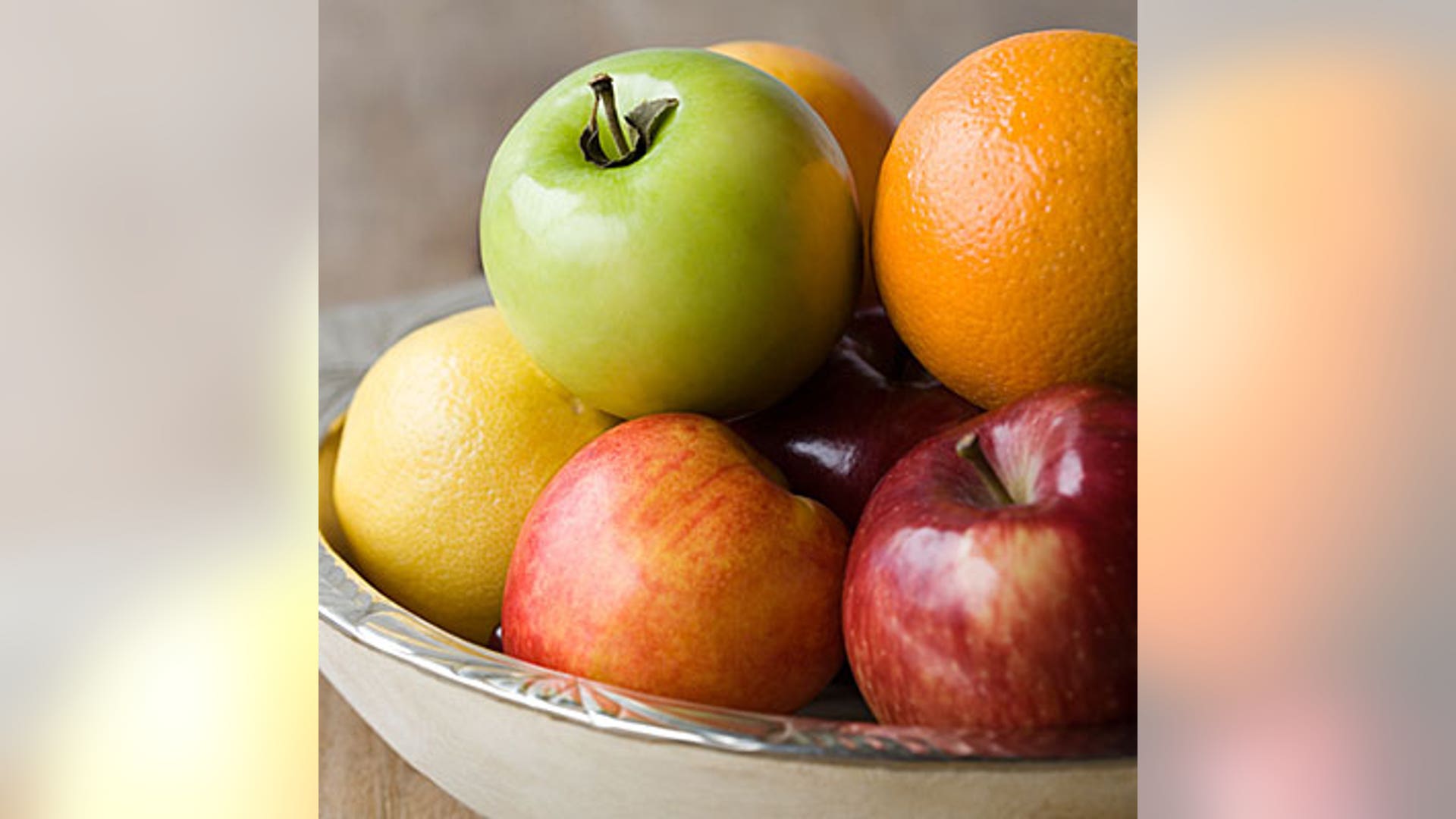Move Back
ADVERTISEMENT
Skip- Published10 Images
10 secrets to affordable organic foods
Like everyone, you want your family to be healthy, but the thought of spending extra cash for organics might make you queasy. Good news: By being choosy about the organics you buy and shopping smart, you can reap the benefits without paying a premium. Check out 10 tips to eating organic food for less.
![dry_uncooked_rice_l]() Prioritize your organic purchases Use your organic dollars wisely. Low-residue produce such as bananas (you peel them before eating) might not be worth the extra cost. (See how to pick produce wisely.) Also, skip packaged and canned organic items, like soups, cookies and pancake mix―not only are they expensive, but they give the least bang for your nutritional buck. BONUS TIP: Babies and toddlers are more vulnerable to the possible effects of pesticides. Make a list of the fruits and veggies your young ones eat most (say, carrots and apples) and consider buying the organic versions, including baby food.read morewww.allyou.comShare
Prioritize your organic purchases Use your organic dollars wisely. Low-residue produce such as bananas (you peel them before eating) might not be worth the extra cost. (See how to pick produce wisely.) Also, skip packaged and canned organic items, like soups, cookies and pancake mix―not only are they expensive, but they give the least bang for your nutritional buck. BONUS TIP: Babies and toddlers are more vulnerable to the possible effects of pesticides. Make a list of the fruits and veggies your young ones eat most (say, carrots and apples) and consider buying the organic versions, including baby food.read morewww.allyou.comShare![dairy_l]() Be strategic with meat and dairy If you’re concerned about exposure to hormones used on cattle, the small risk of mad cow disease from beef, or antibiotics given to livestock, then choose organic meat and dairy. Both are more expensive than conventional, so stock up when they’re on sale (you can freeze milk, too!). Also, aim to eat meat less often, so it’s more affordable when you do buy it. BONUS TIP: Products labeled “no hormones” or “no antibiotics” are a cheaper alternative to organic meat and dairy. Although they aren’t held to the highest organic standard (to find out what that is, see what "organic" really means), they are approved by the USDA and are a healthier choice overall than conventionally raised items.read morewww.allyou.comShare
Be strategic with meat and dairy If you’re concerned about exposure to hormones used on cattle, the small risk of mad cow disease from beef, or antibiotics given to livestock, then choose organic meat and dairy. Both are more expensive than conventional, so stock up when they’re on sale (you can freeze milk, too!). Also, aim to eat meat less often, so it’s more affordable when you do buy it. BONUS TIP: Products labeled “no hormones” or “no antibiotics” are a cheaper alternative to organic meat and dairy. Although they aren’t held to the highest organic standard (to find out what that is, see what "organic" really means), they are approved by the USDA and are a healthier choice overall than conventionally raised items.read morewww.allyou.comShare![coupon_stack_l]() RELATED: 10 best (and cheapest) healthy foods Save with coupons Score printable and mailer coupons by contacting your favorite organic brands and at these sites: mambosprouts.com/couponsdeliciouslivingmag.com/couponsorganicvalley.coop/couponsorganicdeals.blogspot.comstonyfield.com/couponswholefoodsmarket.com/couponshealthesavers.com BONUS TIP: Many manufacturers’ coupons for conventional products work on the brand’s organic line as well, even though that often isn’t indicated. Try this strategy with brands that carry separate organic lines, such as Bertolli pasta sauce.read morewww.allyou.comShare
RELATED: 10 best (and cheapest) healthy foods Save with coupons Score printable and mailer coupons by contacting your favorite organic brands and at these sites: mambosprouts.com/couponsdeliciouslivingmag.com/couponsorganicvalley.coop/couponsorganicdeals.blogspot.comstonyfield.com/couponswholefoodsmarket.com/couponshealthesavers.com BONUS TIP: Many manufacturers’ coupons for conventional products work on the brand’s organic line as well, even though that often isn’t indicated. Try this strategy with brands that carry separate organic lines, such as Bertolli pasta sauce.read morewww.allyou.comShare![food_coop_l]() Join your local food co-op Food co-ops are usually formed by a group of people who want access to organic and natural foods at rock-bottom wholesale prices. The co-ops might be stores where members are required to work shifts or buying clubs where individuals can order produce and other organic or natural items. BONUS TIP: If you have a group of friends interested in banding together to purchase organic foods in bulk, try contacting wholesale suppliers yourself. Google “organic wholesalers” or type “organic food” in the search box at macraesbluebook.com for a list of suppliers around the country.read morewww.allyou.comShare
Join your local food co-op Food co-ops are usually formed by a group of people who want access to organic and natural foods at rock-bottom wholesale prices. The co-ops might be stores where members are required to work shifts or buying clubs where individuals can order produce and other organic or natural items. BONUS TIP: If you have a group of friends interested in banding together to purchase organic foods in bulk, try contacting wholesale suppliers yourself. Google “organic wholesalers” or type “organic food” in the search box at macraesbluebook.com for a list of suppliers around the country.read morewww.allyou.comShare![fruit_apples_l]() Have organics delivered Community-supported agriculture programs (CSAs) are another way to buy fresh organics for less. You pay a fee to a farmer at the start of the growing season and receive a weekly box of produce through harvest time. You generally can’t choose your items, but the cost usually beats supermarket prices. BONUS TIP: Many small farms can’t afford to be certified organic but still use natural methods. Don’t hesitate to ask about a farmer’s practices.read morewww.allyou.comShare
Have organics delivered Community-supported agriculture programs (CSAs) are another way to buy fresh organics for less. You pay a fee to a farmer at the start of the growing season and receive a weekly box of produce through harvest time. You generally can’t choose your items, but the cost usually beats supermarket prices. BONUS TIP: Many small farms can’t afford to be certified organic but still use natural methods. Don’t hesitate to ask about a farmer’s practices.read morewww.allyou.comShare![buying_organics_l]() RELATED: 5 must-have ingredients for healthy, low-cost meals Skip the middle man Buying directly from the source at a farmers market is one of the cheapest ways to get organic produce in season. Cost aside, the food is likely to taste better and have more nutrients than what you can find at the grocery store, because it was freshly picked. BONUS TIP: At farmers markets, shop at the end of the day for the best prices. Some vendors negotiate or offer buy-one, get-one deals rather than lug their bounty back home.read morewww.allyou.comShare
RELATED: 5 must-have ingredients for healthy, low-cost meals Skip the middle man Buying directly from the source at a farmers market is one of the cheapest ways to get organic produce in season. Cost aside, the food is likely to taste better and have more nutrients than what you can find at the grocery store, because it was freshly picked. BONUS TIP: At farmers markets, shop at the end of the day for the best prices. Some vendors negotiate or offer buy-one, get-one deals rather than lug their bounty back home.read morewww.allyou.comShare![Frozen_Veggies]() Shop your freezer in the winter Instead of buying overpriced fresh produce off-season, stock up on frozen organics. Not only are they cheaper than their fresh counterparts, but they can be even more nutritious if they’re flash-frozen at the peak of ripeness. In addition, you reduce waste and spoilage by defrosting only what you need. BONUS TIP: To learn what fruits and vegetables are in season year-round in your part of the country, visit nrdc.org/health/foodmiles. Under “What’s Fresh Near You,” fill in your state and the time of year to find out what fresh produce is available in your state and neighboring ones. You also can click to see a seasonal calendar for the area.read morewww.allyou.comShare
Shop your freezer in the winter Instead of buying overpriced fresh produce off-season, stock up on frozen organics. Not only are they cheaper than their fresh counterparts, but they can be even more nutritious if they’re flash-frozen at the peak of ripeness. In addition, you reduce waste and spoilage by defrosting only what you need. BONUS TIP: To learn what fruits and vegetables are in season year-round in your part of the country, visit nrdc.org/health/foodmiles. Under “What’s Fresh Near You,” fill in your state and the time of year to find out what fresh produce is available in your state and neighboring ones. You also can click to see a seasonal calendar for the area.read morewww.allyou.comShare![veggies_000003705365_l]() Tend a garden There is no cheaper way to eat organically than to cultivate your own food. You don’t need a lot of land―a sunny patch of patio and some containers will do. Lettuce, tomatoes, green beans, peas, squash, carrots, radishes, beets and swiss chard are easy to grow, even if you’ve never gardened. Have extra? Share the harvest! BONUS TIP: Visit allyou.com/garden for a step-by-step beginner’s guide to planning, planting and tending your own vegetable garden. You also can replant cool-weather crops in midsummer for a bonus autumn harvest. Check allyou.com/fallharvest for information.read morewww.allyou.comShare
Tend a garden There is no cheaper way to eat organically than to cultivate your own food. You don’t need a lot of land―a sunny patch of patio and some containers will do. Lettuce, tomatoes, green beans, peas, squash, carrots, radishes, beets and swiss chard are easy to grow, even if you’ve never gardened. Have extra? Share the harvest! BONUS TIP: Visit allyou.com/garden for a step-by-step beginner’s guide to planning, planting and tending your own vegetable garden. You also can replant cool-weather crops in midsummer for a bonus autumn harvest. Check allyou.com/fallharvest for information.read morewww.allyou.comShare![house_brand_l]() RELATED: Low-cal meals for less: 10 recipes under 300 calories a serving Buy the house brand In the past couple of years, several supermarket chains have added organic products to their private labels. Many of the items rival the bigger-name organic versions in quality and are generally far less expensive. BONUS TIP: Stores that carry organic lines include Food Lion, Hannaford, Kroger, Publix, Safeway, Stop & Shop, SuperTarget, Trader Joe’s, Walmart, Winn-Dixie and Whole Foods.read morewww.allyou.comShare
RELATED: Low-cal meals for less: 10 recipes under 300 calories a serving Buy the house brand In the past couple of years, several supermarket chains have added organic products to their private labels. Many of the items rival the bigger-name organic versions in quality and are generally far less expensive. BONUS TIP: Stores that carry organic lines include Food Lion, Hannaford, Kroger, Publix, Safeway, Stop & Shop, SuperTarget, Trader Joe’s, Walmart, Winn-Dixie and Whole Foods.read morewww.allyou.comShare![shopping_cart_l]() Check out member warehouse clubs The major warehouse clubs sometimes sell organics at prices that compare to those for conventional goods (specific products vary by store and region). Costco’s offerings fluctuate seasonally, but the club tends to carry organic dairy, meat, produce and packaged goods. BJ’s carries Earth’s Pride products and some produce, and Sam’s Club has certain dairy, produce and other products. BONUS TIP: Because most items at warehouse clubs are oversize, be sure to shop with a friend and split your purchases on fresh food to ensure that your savings don’t go to waste.read morewww.allyou.comShare
Check out member warehouse clubs The major warehouse clubs sometimes sell organics at prices that compare to those for conventional goods (specific products vary by store and region). Costco’s offerings fluctuate seasonally, but the club tends to carry organic dairy, meat, produce and packaged goods. BJ’s carries Earth’s Pride products and some produce, and Sam’s Club has certain dairy, produce and other products. BONUS TIP: Because most items at warehouse clubs are oversize, be sure to shop with a friend and split your purchases on fresh food to ensure that your savings don’t go to waste.read morewww.allyou.comShare- Published10 Images
10 secrets to affordable organic foods
Like everyone, you want your family to be healthy, but the thought of spending extra cash for organics might make you queasy. Good news: By being choosy about the organics you buy and shopping smart, you can reap the benefits without paying a premium. Check out 10 tips to eating organic food for less.
Move Forward
- 10 secrets to affordable organic foods










Thumbnail View
Image 0 of 10









